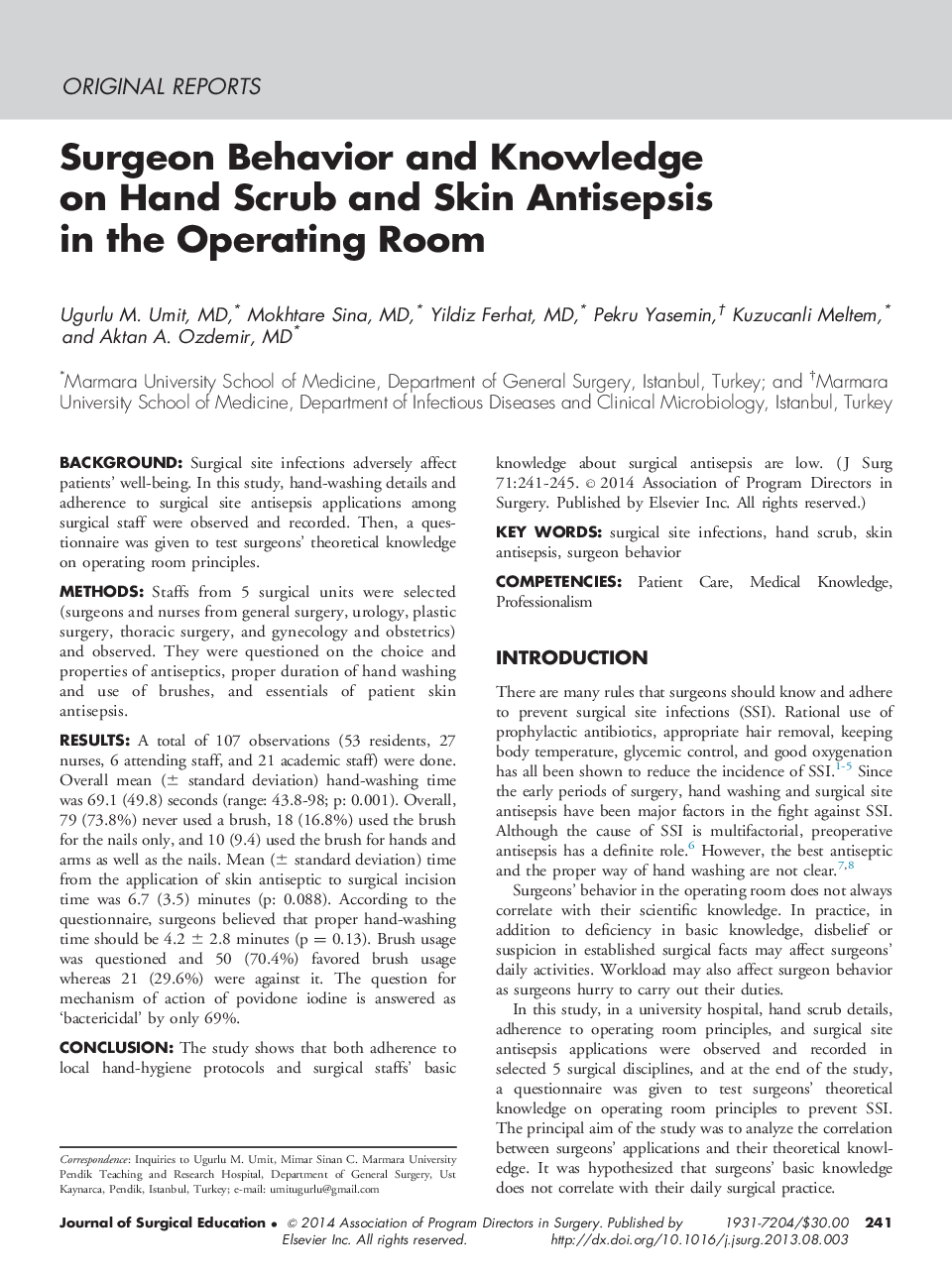| Article ID | Journal | Published Year | Pages | File Type |
|---|---|---|---|---|
| 4297609 | Journal of Surgical Education | 2014 | 5 Pages |
BackgroundSurgical site infections adversely affect patients’ well-being. In this study, hand-washing details and adherence to surgical site antisepsis applications among surgical staff were observed and recorded. Then, a questionnaire was given to test surgeons’ theoretical knowledge on operating room principles.MethodsStaffs from 5 surgical units were selected (surgeons and nurses from general surgery, urology, plastic surgery, thoracic surgery, and gynecology and obstetrics) and observed. They were questioned on the choice and properties of antiseptics, proper duration of hand washing and use of brushes, and essentials of patient skin antisepsis.ResultsA total of 107 observations (53 residents, 27 nurses, 6 attending staff, and 21 academic staff) were done. Overall mean (± standard deviation) hand-washing time was 69.1 (49.8) seconds (range: 43.8-98; p: 0.001). Overall, 79 (73.8%) never used a brush, 18 (16.8%) used the brush for the nails only, and 10 (9.4) used the brush for hands and arms as well as the nails. Mean (± standard deviation) time from the application of skin antiseptic to surgical incision time was 6.7 (3.5) minutes (p: 0.088). According to the questionnaire, surgeons believed that proper hand-washing time should be 4.2 ± 2.8 minutes (p = 0.13). Brush usage was questioned and 50 (70.4%) favored brush usage whereas 21 (29.6%) were against it. The question for mechanism of action of povidone iodine is answered as ‘bactericidal’ by only 69%.ConclusionThe study shows that both adherence to local hand-hygiene protocols and surgical staffs’ basic knowledge about surgical antisepsis are low.
